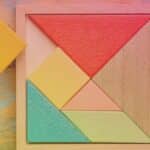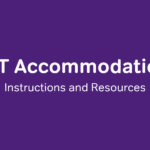You may have a child who is 6’6 and the star basketball player at his school. Or your child might come in a few inches short of the average and make up what he lacks on the court with some pretty mean dance moves. Such variability in height is apparent to everyone. But when it comes to learning, we tend to get far more binary: he’s either good at school or not good at school. What we don’t realize is that there are many different learning styles—and the ability to learn in the classroom is just one of them.
When it comes to SAT prep, variation in learning style becomes even more germane, since you have a choice. Do you sign your kid up for a thirty-person test prep class in the hope that he or she will distinguish him or herself from the other students, or do you opt for a personal tutor?
Well, that breakdown was a little binary on my part, since the reality is far more variegated: your child may flourish watching some Sal Khan videos and doing practicing questions out of Princeton Review. She might get a few of her study-minded friends together and find a top-rated tutor on wyzant.com or yelp.com. Or maybe your kid excels in a classroom environment, and the SAT “boot camp” class down the road is the way the go.
The simple truth is that there is a set-up that best fits your son or daughter’s learning style, and though you might have to tinker around a little, finding the best fit will be well worth it.
The Internet
There is a wealth of Internet material out there. Not all of it is up to snuff. Below is a suite of the best online resources.
Toolkit:
1. Khan Academy
Video tutorials on every aspect of math. Full explanations for every math question that shows up in the College Board book (that’s the SAT Bible).
Pros: Abundance of material, friendly and easy-to-listen-to lecturer, it’s free.
Cons: May not go in-depth enough on some of the SAT question explanations, no verbal or writing SAT question review.
2. Magoosh
Similar to Khan Academy, in that much of the learning is video lecture based. Magoosh differs in that it offers text explanations for every question, as well as around the clock support. Magoosh provides its own SAT questions, whereas khanacademy.com reviews College Board questions.
Pros: Video explanations for every question, comprehensive grounding in SAT fundamentals, Magoosh also has a helpful blog (which you probably know already!)
Cons: Not as many practice questions as some of the other sources (more questions will be added over the next year). It’s not free. (Starting at $79.)
3. Princeton Review Online Course
Pros: Plenty of practice material, lessons that help with a grounding of the fundamentals
Cons: At $300, it is much pricier than the other options.
4. The College Board Online Course
From the writers of the test, eight full-length practice tests that are not part of the Blue Book (this book, by the way, is one that no SAT student can do without) make this an enticing offering.
Pros: Real SAT tests.
Cons: Text explanations to questions only, explanations generally lacking, grounding in fundamentals, not as strong as other sources.
5. PWN the SAT
A hip blog that offers excellent strategies all for free. It doesn’t provide explanations to SAT questions, but uses it’s own questions, most of which are math practice questions.
Pros: Great for strategies on all parts of the test
Cons: Not much practice on the Critical Reading or the Writing sections
When the Internet alone doesn’t cut it
Some students need a stern authoritarian figure—or at least a somewhat menacing one—to assign and check homework. The I’ll-do-it-myself approach doesn’t tend to work too well for these students.
That doesn’t mean that the Internet won’t still be of some value; much of the information and many of the strategies your child learns in the classroom can be reinforced by using some of the above. Indeed, what better way for your child to have an edge in the classroom by supplementing his studies with some of the resources above?
Is classroom learning always the best approach?
I know: you are probably expecting me to say that if your child doesn’t do well in class, he or she would be much better off trying a tutor or some online tools. That point is obvious. But what’s not so obvious is that just because your child does decently well in a classroom setting doesn’t mean that is their optimal learning environment.
“Test-drive” a tutor. Have your child take a mock classroom test at Princeton Review or any other nearby testing center. Any difference? Perhaps your child is more enthusiastic about one than the other (typically a good sign). Maybe, he or she feels she actually learned more in the same amount of time with a tutor, or vice versa. The key is to experiment.
A combination of approaches
You’ll notice that I didn’t mention a classroom only approach. Why? Well, even those students who excel in a classroom format stand to benefit from prepping online (and it doesn’t hurt that much of the material out there is free).
On the other hand, a combination of Internet resources and the College Board book might be enough. But don’t think one book will do the trick or one Internet resource will help realize your kid’s true SAT score potential.
Wrap-up
The first step is to know what’s out there (hopefully, this post helps!). The second step is to experiment. The third step is to figure out what works best for your child, something that is not always easy to figure out, but that can be arrived at by talking with your son or daughter about his or her experience and by using practice tests to see if your son’s or daughter’s score is improving.





Leave a Reply